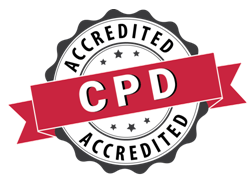Sebastian Ziewer Arndts
Analyticon Instruments GmbH, Germany
Biography
Sebastian Ziewer Arndts completed his Diploma in Biology at University of Bonn from 2000-2006; he was scientific employee from 2006-2012 and completed his PhD thesis at University Hospital Bonn in 2012. His thesis was about “Immunological mechanisms and vaccination strategies in the murine model of human lymphatic filariasis”. He has been Trainer and Technical Consultant for XRF, NIR, FT-IR, and Raman spectroscopy at Bio-Chem division of Analyticon Instruments GmbH since 2012. He focuses on “Quality control in the chemical and pharmaceutical industry”.
Abstract
Molecular spectroscopy is used along the entire process chain in the chemical and pharmaceutical industry, e.g., for raw material identification in the warehouse, real-time monitoring in the production and batch release for final product control. This talk illustrates the most recent trends of NIR and Raman spectroscopy: Spatially offset Raman for raw material identification - portable spatially offset spectrometers are able to analyse substances without sampling in unopened containers, even if those are opaque like brown paper sacks or white plastic containers. Measurements can be done by non-expert users and are completed within seconds. Virtual split Raman for static inprocess control - the virtual split technology multiplies the photon yield tenfold. Measurements are shortened to seconds instead of minutes or hours and analytics in the ppm range are possible, perfect for quality-by-design and continuous manufacturing approaches. Linear variable filter NIR for dynamic in-process control - tiny NIR systems with linear variable filter technology have no moving parts or delicate fiber optics, and can be installed almost everywhere to monitor typical processes like granulation or drying. A wireless battery-powered version can be mounted in dynamic processes, like rotating blenders. Transmission Raman for final batch release-transmission Raman spectroscopy (TRS) has emerged as a non-invasive and consumables-free alternative to time-consuming and expensive HPLC. It’s mainly used for the analysis of tablets, e.g. the content of active pharmaceutical ingredient or polymorphs.
